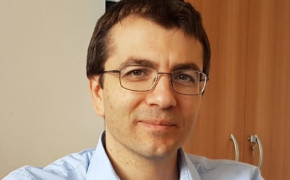Support actions for citizens, municipalities and developers
In 2015, a Wind Energy Service Unit (SU) was set up in Thuringia by the state’s Energy and GreenTech Agency (ThEGA). The initiative was in part motivated by the political will to restore trust in local wind energy projects by promoting fair and more transparent planning and decision-making procedures.
The SU provides free, comprehensive and neutral advisory and technical assistance services for citizens, municipalities and developers in Thuringia. In addition, in 2016 the SU started to award a voluntary fair quality label for wind energy project developers committing themselves to adhere to certain standards concerning involvement of different interest groups, transparency and fair participation of the local communities. Furthermore, the measures help bringing together developers and communities/citizens and improve the active and passive financial participation of citizens and communities in wind energy projects. For the award of the label, it is required that planners and developers fulfil transparency and participation criteria also including the development of direct financial participation opportunities for citizens and municipalities in Thuringia.
Resources needed
Currently, the SU has a staff of 3.5 full time employed persons. Funding is partly provided by the federal state government, partly by the ERDF. The establishment of a Service Unit needs strong and continuous policy commitment, organisational efforts, qualified and committed staff, funding.
Evidence of success
The SU has already been very widely used, suggesting there is a strong degree of trust in it. From 2015 to 2018, 102 communities and 180 companies or other organisations in Thuringia have consulted ThEGA, and there were 143 citizen requests.
In addition, the label shows growing effectiveness, as it is getting increasingly difficult for project developers to do business in Thuringia without the label for fair wind energy. To date, 50 project developers have been awarded the label.
Difficulties encountered
Some interviewed developers (of which one is a citizen energy cooperative) criticised the label. They argue that the label is not strict enough, as it is implemented on a voluntary basis and there are no resources to sufficiently monitor if its guidelines are really met by each developer.
Potential for learning or transfer
For the SU, the transfer potential can be regarded as high. The SU has been contacted for advice by actors from other federal states too. There have been transfer initiatives in other German regions aiming to follow the example of Thuringia by transferring/adapting the concept of a Service Unit, partly in combination with a labelling scheme for developers (e.g. Saxony-Anhalt, Brandenburg, Saxony, Hesse, Schleswig-Holstein).
However, the head of the Thuringian SU and some other interviewed actors emphasized that the design of a unit cannot be transferred without adaptations taking into account regional characteristics: every federal state/region has its own characteristics and challenges, e.g. geographical conditions, financial strength, planning policy, density of wind energy infrastructure, history/culture of energy cooperatives and citizen/community ownership, conflict potentials between actors, etc.
This is one of the good practices identified by the H2020 WinWind project.
Please login to see the expert opinion of this good practice.
Tags: Energy, Renewables








